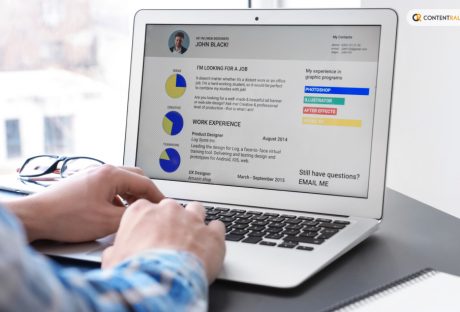Considering today’s fast-paced world, it is only natural that more and more people are searching for low-stress jobs that might even come without a degree.
You see, not everyone will have the means to pursue a college degree, spend loads of money, and then choose a career in which they will have to hustle until the end. Not everyone is okay with living a life in which they cannot even breathe.
According to the Bureau of Labor Statistics (BLS), more and more people are now applying for jobs that come with the least amount of stress but several benefits.
If you are also tired of your day-to-day life, or have been laid of from a high tech company, and want to take up a job that provides you with enough monetary security and low stress, then I have you covered!
So, keep on reading this blog till the end to learn more…
Why are People Searching for Low-Stress Jobs?

As I already told you, there has been a surge in the search for low-stress jobs worldwide. And you might be thinking, why so? Does it have a lot of benefits?
The answer to that is YES.
People are always on the run to improve the quality of their lives, so they do not want to add excessive stress.
One of the best things low stress can offer is a healthy work-life balance. This balance can allow individuals to spend more time with their families and pursue their hobbies.
Additionally, having a low-stress job comes with several health benefits. For instance, chronic stress can lead to health problems. Having a job that ensures you have the time to relax can also contribute to better mental as well as physical health.
There is yet another reason why more and more people are looking for low-stress jobs. These jobs come with a degree of autonomy, ensuring you have creative freedom and control over the tasks you are supposed to do!
Lastly, these jobs also offer many financial benefits. People automatically flock toward them because they offer stability and security without high-pressure job roles.
Best Low-Stress Jobs Without a Degree in 2024!
Now that you know about the reasons why people are shifting towards low-stress jobs, it is time for you to get to what you have been searching for the list of the best low-stress jobs without a degree!
So, without further ado, let us get straight into it!
1. Courier

Firstly, on the list of low-stress jobs that do not need a degree is that of someone who is in courier services.
They are responsible for transporting packages and paperwork from one location to another. If you plan to become one, you can ride a bike or drive a car to pick up and drop off the stuff.
You may also need to occasionally get the signatures of the people who are at the receiving end of their parcel.
This job does not require a degree, offers a flexible schedule, and is definitely not mentally and physically taxing.
2. Floral Designer

Secondly, The next one on this list is the job of a floral designer. These are the people who are in charge of flower arrangements for events like birthday parties and weddings.
The job of a floral designer does not need a degree. It also offers a flexible work schedule, mainly picking flowers and arranging them to make them look nice. They are also in charge of helping customers choose the flowers.
This is a job that lets you use your creativity at work every single day. Additionally, if you are a woman looking for blue collar jobs but want something easier, this is something you are looking for, you might look at this job!
3. Makeup Artist

Thirdly, being a makeup artist is something that most people are trying to become. Most of us look at it as a low-stress job because of the fact that it comes with a flexible working schedule. Additionally, you get to be creative and try something new on your clients!
You might have seen that several influencers on the internet showcase their creativity. This goes on to prove that you do not even need to have a degree to do this job.
All you need to know is how to do make-up and work with cosmetics, and how to experiment!
4. Travel Agent

Fourthly, being a travel agent is something that you can try if you want to have a low-stress job that pays you well. They are primarily responsible for making the travel arrangements for their clients.
They need to search the greatest deals and book the tickets for traveling, staying, and offer travel guidance.
It’s a career that involves assisting others and is frequently done online, which contributes to its low-stress factor.
5. Roofer

In case you did not know, a roofer is someone who is in charge of the professional construction and installation of the roof. They are also responsible for maintaining and repairing the roofs of their clients.
Additionally, they inspect the roofs (in case there are any damages), repair the holes and the broken shingles in the roof, and make it weather resistant.
Considering the fact that the tasks of the roofers are seasonal, it ensures that they have the flexibility to work and choose their projects depending on their
6. Hairstylist

The next one on this list is the job of being a hairstylist. Similar to makeup artists, these people work with individual clients on specific occasions. They interact with the people while working for themselves or at a salon.
While these people do need a license to practice, they do not need an educational degree. All you need to do is enroll in a state-approved program in cosmetology.
So, if this is something that you are interested in, it is best that you get to work, as these are some of the growing industries that have literally zero pressure!
7. Painter

Are you someone who likes to work with colors? If your answer is yes, then it is best that you become a painter. As a professional service provider, you might have to paint the building, the interior, or the surface.
8. Massage Therapist

You probaby did not think that this would be on the list, right? Becoming a massage therapist is frequently regarded as a low-stress job that does not require a degree.
Massage therapists operate in peaceful environments, such as spas, and provide treatments to assist clients relax or ease pain.
While certification may be required, the employment itself is generally tranquil and provides an opportunity to improve the well-being of others, which may be both rewarding and stress-free.
9. Maintenance Technician

If you know how to become an electrician, becoming a maintenance technician will automatically come to you. These people are in charge of keeping a building safe.
For this, they evaluate and repair whatever issues a building might face regarding electrical systems, HVAC appliances, and more.
You may have seen them work at hospitals and other residential facilities. These people work on a client-to-client basis, which ensures that they have the flexibility to choose their work.
10. Security

The next one on this list is the job of a security guard. In most cases, it is considered a low-stress job that doesn’t require a degree.
Security guards ensure the safety of people and property. They monitor entrances, check visitors, and sometimes work with law enforcement.
It’s a job with a routine and doesn’t typically involve high-pressure situations, making it relatively stress-free.
11. Shipping Clerk

Just as the name suggests, the task of a shipping clerk is to manage the shipments that come in and go out of a company.
These jobs are considered to be of low stress that you can have without a degree. They primarily handle paperwork, organize packages, and sometimes track inventory.
It’s usually a routine job with regular hours and not much pressure, making it a good option for those seeking a calmer work environment.
12. Cook

As we all know, a cook is a culinary professional that makes meals for customers and guests at various locations.
They frequently prepare for shifts by cutting, slicing, chopping, and peeling items and organizing work areas. They then cook and plate meals based on menus and customer choices.
Cooks are most commonly found in restaurants, but they are also employed by schools, hotels, medical facilities, nursing homes, and other organizations.
13. Upholsterer

An upholsterer uses upholstery, or soft covers, to create and fix furniture. They regularly assist customers in updating outdated furnishings.
In order to alter their appearance and enhance comfort, upholstery professionals can also add springs, padding, and fabric to newly purchased couches, chairs, and stools.
Upholsterers typically obtain their trade through apprenticeships with seasoned industry professionals or through on-the-job training.
14. Welder

Next one on this list is a welder. These are the experts who are responsible for working with metals and fusing them together. For this, they use a welding torch, a specialized instrument that produces extreme heat.
They ensure the integrity of the safety equipment they use to safeguard both themselves and other people, inspect materials before welding, and keep the right amount of heat throughout the process.
One can witness welders at work on a wide range of machinery and structures, including automobiles, ships, buildings, bridges, and pipelines.
15. Housekeeper

Lastly, housekeeping is commonly regarded as a low-stress career that does not require a degree.
Housekeepers clean and maintain areas, keeping them tidy and sanitary. They could work at hotels, hospitals, or private residences.
The job entails basic duties that may be completed at a regular pace, which many people find manageable and stress-free.
Wrapping It Up!
If you are searching for the best low-stress jobs without a degree, I hope that this blog has helped you. If you have any questions related to this, please feel free to let me know. All you need to do is scroll down until you reach the bottom of the page. Then, leave your comments and suggestions in the box below. I will be there to answer them all for you!
Learn More Also:























